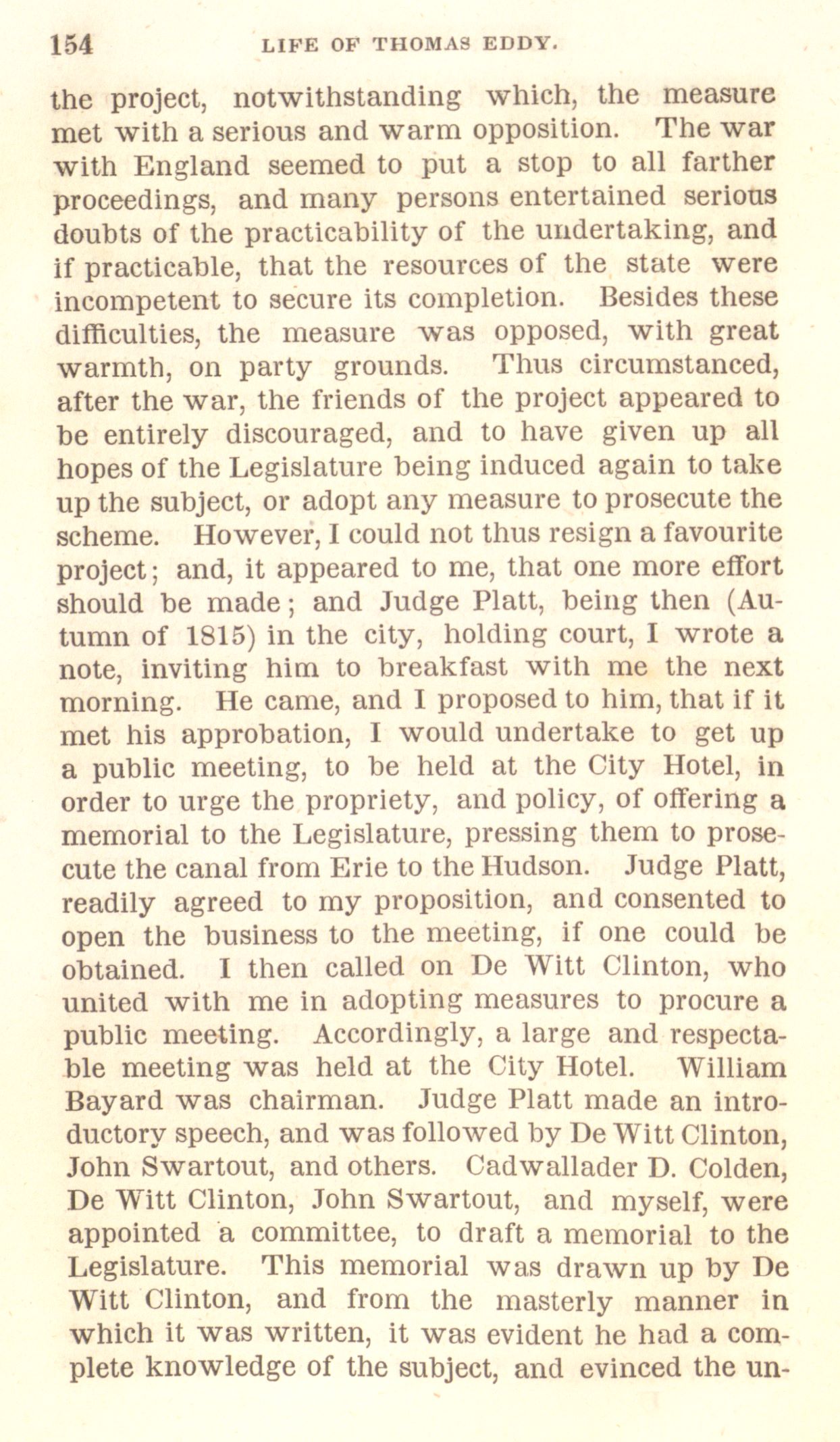the project,
notwithstanding which, the measure
met with a serious and warm
opposition. The war
with England
Place Information
proceedings, and many persons entertained serious
doubts of the practicability of the undertaking, and
if practicable, that the resources of the state were
incompetent to secure its completion. Besides these
difficulties, the measure was opposed, with great
warmth, on party grounds. Thus circumstanced,
after the war, the friends of the project appeared to
be entirely discouraged, and to have given up all
hopes of the Legislature being induced again to take
up the subject, or adopt any measure to prosecute the
scheme. However, I could not thus resign a favourite
project; and, it appeared to me, that one more effort
should be made; and Judge Platt
Person Information
tumn of 1815) in the city, holding court, I wrote a
note, inviting him to breakfast with me the next
morning. He came, and I proposed to him, that if it
met his approbation, I would undertake to get up
a public meeting, to be held at the City Hotel, in
order to urge the propriety, and policy, of offering a
memorial to the Legislature, pressing them to prose-
cute the canal from Erie to the Hudson. Judge Platt
Person Information
readily agreed to my proposition, and consented to
open the business to the meeting, if one could be
obtained. I then called on De Witt Clinton
Person Information
united with me in adopting measures to procure a
public meeting. Accordingly, a large and respecta-
ble meeting was held at the City Hotel. William
Bayard
Person Information
Person Information
ductory speech, and was followed by De Witt Clinton
Person Information
John Swartout
Person Information
Person Information
De Witt Clinton
Person Information
Person Information
appointed a committee, to draft a memorial to the
Legislature. This memorial was drawn up by De
Witt Clinton
Person Information
which it was written, it was evident he had a com-
plete knowledge of the subject, and evinced the un-

